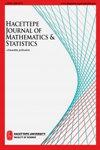基于近似贝叶斯计算的人口蒙特卡罗条件密度估计
IF 0.7
4区 数学
Q2 MATHEMATICS
引用次数: 0
摘要
大多数统计方法需要进行似然评估来得出统计推断。然而,在某些情况下,似然评估在分析或计算上变得困难。不同的无似然方法可以消除计算似然函数的需要。近似贝叶斯计算(Approximate Bayesian Computation, ABC)是一种实现无似然推理的框架,它利用正演建模代替似然评估。ABC方法的目标是近似后验分布。然而,对于高维,通过ABC方法的后验逼近仍然相当昂贵。ABC需要许多模拟,而这些模拟在计算上对于复杂的模型是不可行的。本文提出了一种结合了ABC (Population Monte Carlo, PMC)和条件密度估计(Conditional Density Estimation, CDE)方法的更有效形式的技术。提出的框架提供了后验分布的估计,称为PMC-CDE。仿真研究提供了经验证据,证明了PMC-CDE在积分平方误差损失方面的效率。此外,实际数据集显示了所提出方法的应用。本文章由计算机程序翻译,如有差异,请以英文原文为准。
Conditional density estimation using population Monte Carlo based approximate Bayesian computation
Most statistical methods require likelihood evaluation to draw a statistical inference. However, in some situations, likelihood evaluation becomes difficult analytically or computationally. Different likelihood-free methods are available that eliminate the need to compute the likelihood function. Approximate Bayesian Computation (ABC) is a framework that implements likelihood-free inference and replaces the likelihood evaluation with simulations by using forward modeling. The goal of ABC methods is to approximate the posterior distribution. However, posterior approximation via ABC methods is still considerably expensive for high dimensions. ABC requires many simulations that become computationally infeasible for complex models. Here, a technique is proposed that combines a somewhat more efficient form of ABC (Population Monte Carlo, PMC) with a Conditional Density Estimation (CDE) approach. The proposed framework provides an estimation of the posterior distribution which is referred to as PMC-CDE. A simulation study is performed that provides empirical evidence to show the efficiency of PMC-CDE in terms of integrated squared error loss. Furthermore, real-life datasets manifest the application of the proposed method.
求助全文
通过发布文献求助,成功后即可免费获取论文全文。
去求助
来源期刊
CiteScore
1.70
自引率
0.00%
发文量
100
审稿时长
6-12 weeks
期刊介绍:
Hacettepe Journal of Mathematics and Statistics covers all aspects of Mathematics and Statistics. Papers on the interface between Mathematics and Statistics are particularly welcome, including applications to Physics, Actuarial Sciences, Finance and Economics.
We strongly encourage submissions for Statistics Section including current and important real world examples across a wide range of disciplines. Papers have innovations of statistical methodology are highly welcome. Purely theoretical papers may be considered only if they include popular real world applications.

 求助内容:
求助内容: 应助结果提醒方式:
应助结果提醒方式:


